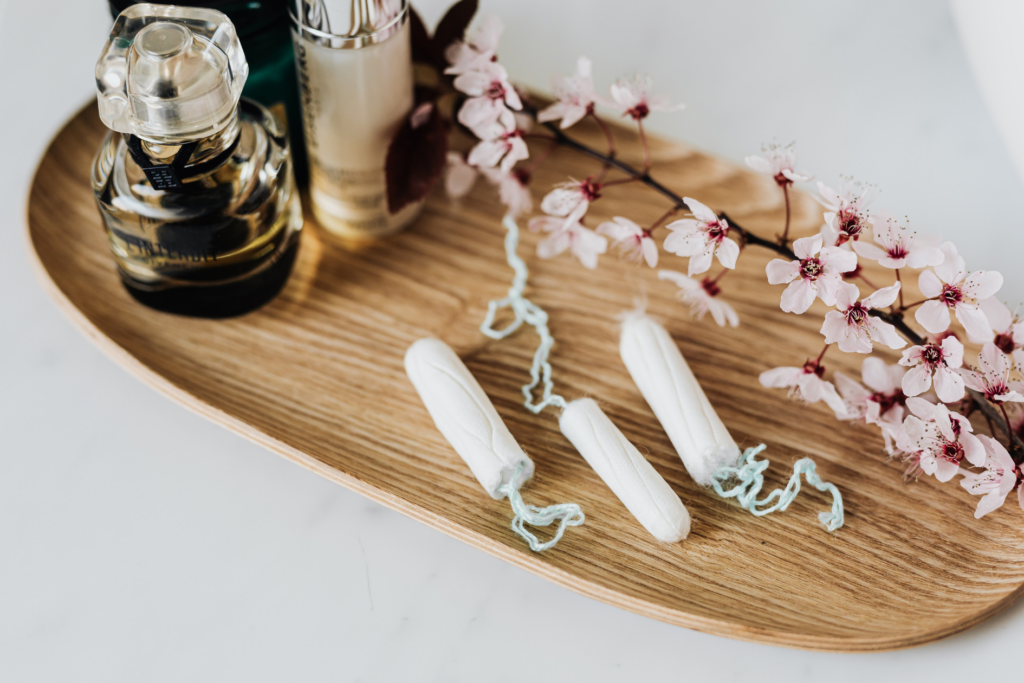
The tampon is one of the most popular solutions ever invented for menstrual care. Out of many, it has consistently been the option of choice for women around the globe. Unlike its competitors, the tampon provides ultimate comfort and convenience when that time of the month rolls around- mess-free.
Especially handy for women who live active, busy lifestyles (or who simply don’t want to walk around with something sitting in their panties all day), tampons allow certain freedoms not previously known. Going swimming, playing sports, or wearing specific kinds of underwear/clothing are only some examples of instances where tampons are better solutions than pads.
In recent years we’ve seen an increasing demand for organic menstrual products, and rightfully so. With the advancement of research and technology and the growing concern for the carbon footprint we leave behind as consumers, we should expect nothing less than for the products we put inside our bodies to be made with the cleanest materials possible.
Currently, there are a handful of conscious personal care brands that dominate the market by offering organic products that claim to be better for vaginal (and environmental) health – but is that really true?
Anyone who’s ever experienced skin irritation or more serious conditions such as toxic shock syndrome from a tampon will tell you yes. However, the limited research available on the topic suggests there’s actually not much scientific proof that supports any definitive answer.
Tampons are made of mostly cotton. Depending on the brand, sometimes a blend of cotton and rayon fibers. In conventionally grown cotton, it’s common to find chemicals cotton farmers use to grow and harvest it, such as pesticides, herbicides, and fertilizers.
When a tampon is marked as ‘organic’, it means the cotton it’s made from is grown without the use of these harmful chemicals.
For starters, they expose the cotton farmers and workers who treat the cotton with them to long-term health risks such as respiratory problems, skin irritation, an elevated vulnerability to cancer, and disruption to the body’s metabolic function. Research says it can also negatively impact reproductive, immune, endocrine, and nervous systems.
Now just imagine- if these are the potential effects of simply being exposed to the chemicals, what kind of harm can be done to those of us who are putting them inside our bodies? Yikes- we’ll pass.
Additionally, these harmful chemicals pollute the environment and disturb the natural flow of wildlife ecosystems. Synthetic fertilizers decrease soil quality by destroying its naturally provided nutrients to make crops grow bigger and faster. This reduces the soil’s fertility and its ability to produce crops over time. The sickest part is the codependent cycle it creates for cotton farmers, who then become reliant on the chemicals in order to keep up with product demand.
Menstrual care products made from organic cotton are believed to be less likely to cause skin irritation or allergic reactions, as they’re made from hypoallergenic materials and are designed specifically to avoid such harmful side effects.
In addition to considering the health of our society, the effort to use sustainable materials also helps the impact that’s left on the environment from the use and production of these products.
It’s important to note that menstruation is an extremely personal experience. Every woman is different, from how heavy and regular her periods are, to the types and severity of PMS symptoms she feels. Period solutions are not one-size-fits-all. Some women may still have adverse effects when using organic tampons, in which case she should explore alternative options like pads or period cups.
There’s no scientific evidence that organic tampons are ‘better‘, per se, but the court of popular opinion would beg to differ. Although the research is limited and organic tampons are not regulated by the FDA, the lived experiences of countless women promises you have nothing to lose by giving them a try.
At the very least, you’ll have peace of mind knowing you’ve eliminated a huge range of acute health risks that come from the dangerous chemicals found in non-organic cotton products. Ultimately though, the choice is yours.
Still on the fence? We recommend consulting with your doctor on finding the most ideal situation for your vagina.
Yet, if you know certain materials contain harmful chemicals known to have destructive, irreversible effects on your health- why insert and house them in your body for hours at a time?
As women, dealing with bleeding isn’t the only challenge we’re up against when aunt flow comes to town. There’s also the mood swings, anxiety, and lethargy caused by hormonal imbalance, and the abdominal pain or discomfort (cramping) we have to consider. For some, these PMS symptoms alone can be debilitating.
Have you been experiencing periods that distract you from your daily life?
Here are two pieces of advice we have for you to upgrade your vaginal health:
Curious to learn more about how CBD can help with pain and discomfort during your periods? Check out our CBD Academy on Ladykind.com today!